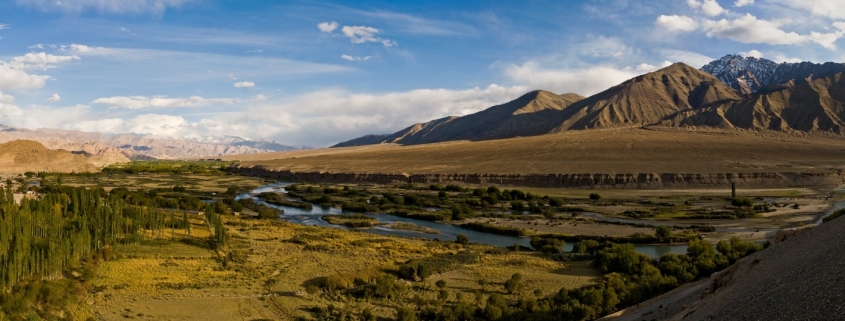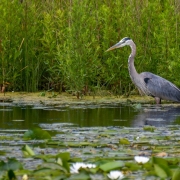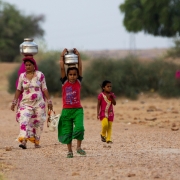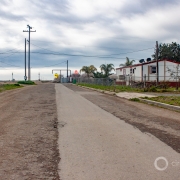HotSpots H2O: Suicide Bombing Sours India-Pakistan Water Relations
The Rundown
Just weeks after a Pakistani delegation inspected two Indian hydropower projects during a cross-border visit that was deemed a breakthrough, a suicide bombing in Kashmir resulted in another setback in India-Pakistan water relations.
The attack, which took place on February 14 in the disputed region, killed more than 40 Indian paramilitary troops. A Pakistani-linked militant group claimed responsibility for the bombing, drawing the ire of India, which threatened retaliation against Pakistan. Officials in Pakistan, however, say the country was not involved in the attack.
In the wake of the bombing, Indian transport minister Nitin Gadkari tweeted: “Our Govt. has decided to stop our share of water which used to flow to Pakistan. We will divert water from Eastern rivers and supply it to our people in Jammu and Kashmir and Punjab.”
The declaration is not new policy. Under the 1960 Indus Waters Treaty, India can exert full control over the three eastern rivers of the Indus basin, while Pakistan controls the three western rivers. For decades, however, India has used what it needed from the eastern rivers, then allowed the remainder to flow into Pakistan. Following a 2016 terrorist attack, India announced it would begin harnessing the entirety of the eastern rivers, a decision that was reemphasized in Gadkari’s tweet.
Still, experts say the message casts doubt on the stability of the Indus Waters Treaty, which has been a continual source of controversy since its inauguration. The treaty has survived so far, but faces ongoing threats in an increasingly water-scarce part of the globe.
“While I don’t see any imminent threat to Pakistan, we may be getting a glimpse of the future of conflict in South Asia. The region is water-stressed. Water may be emerging as a weapon of war.” –Arif Rafiq, a political analyst at the Middle East Institute in Washington, in reference to India’s recent statements.
By the Numbers
31 million acre-feet Possible water shortage in Pakistan by 2025, equal to about a third of the country’s current irrigation needs. Pakistan is one of the world’s most water-stressed nations, and relies heavily on the waters of the Indus basin.
95 percent Proportion of Pakistan’s irrigation infrastructure located in the Indus basin.
400 Dams that are planned or under construction in India, Nepal, Bhutan, and Pakistan.
94 percent Proportion of water in the Indus basin eastern rivers that India currently utilizes. The country plans to take full control of the rivers.
On the Radar
Pakistan’s Ministry of Water Resources Khawaja Shumail says the country is unconcerned with India’s plan to stop the flow of eastern rivers into Pakistan, noting that the diversion is permissible under the Indus Waters Treaty. Shumail added that Pakistan would be quick to “express our concerns and raise objections,” however, if India began diverting the basin’s western rivers.
Resources and Further Reading
Are India and Pakistan on the Verge of a Water War? (Foreign Policy)
Explained: India’s policy shift in sharing Indus waters with Pakistan (The Indian Express)
India Threatens a New Weapon Against Pakistan: Water(The New York Times)
India wants to use water as a weapon against Pakistan. A 59-year-old treaty stands in the way.(The Washington Post)
Pakistan says its not concerned over India’s plan to stop flow of water(The Hindu)
Water flowing to Pakistan from eastern rivers will be diverted to J-K, Punjab: Gadkari (The Indian Express)
Kayla Ritter is a recent graduate of Michigan State University, where she studied International Relations and Teaching English to Speakers of Other Languages. She is currently based in Manton, Michigan. Kayla enjoys running, writing, and traveling. Contact Kayla Ritter












Leave a Reply
Want to join the discussion?Feel free to contribute!